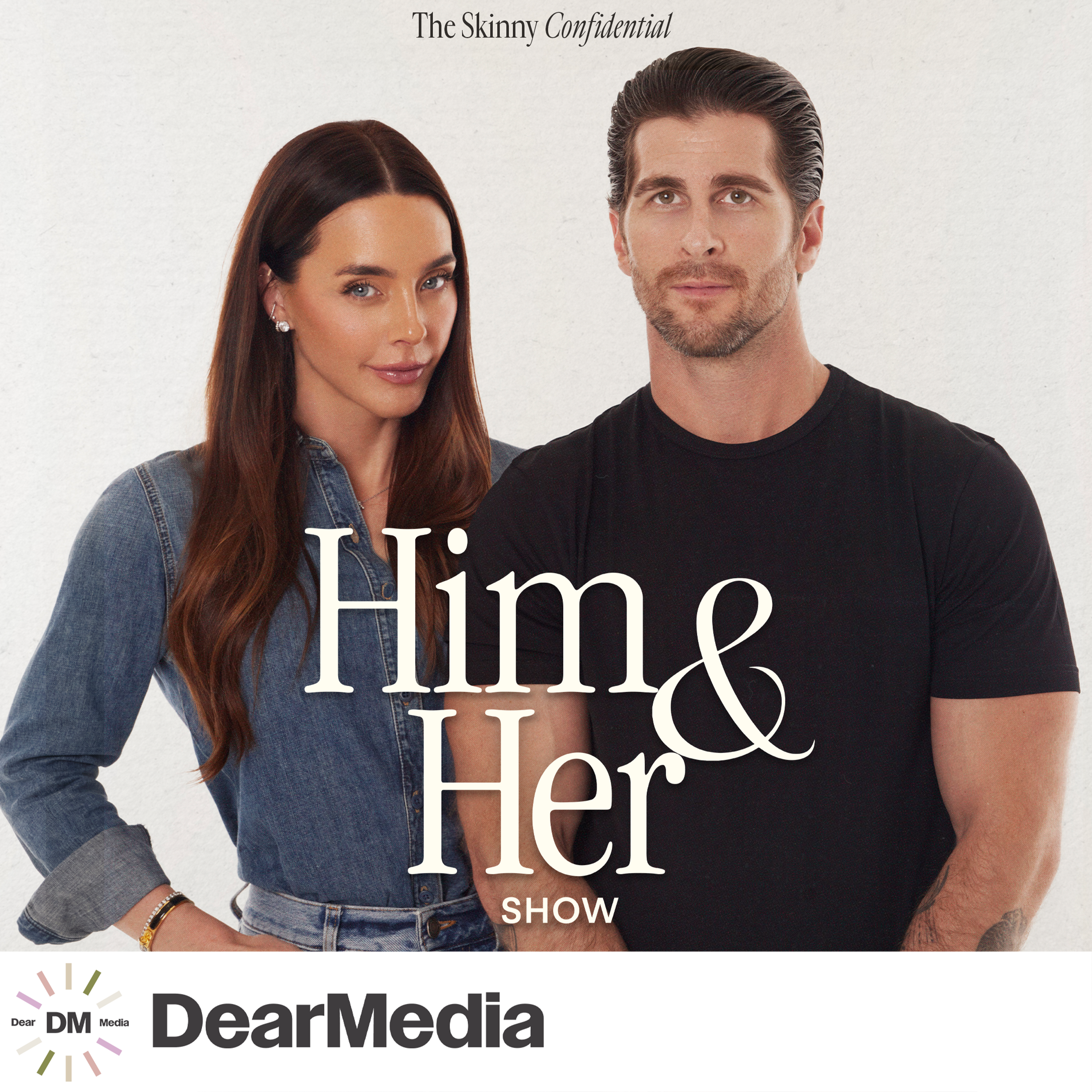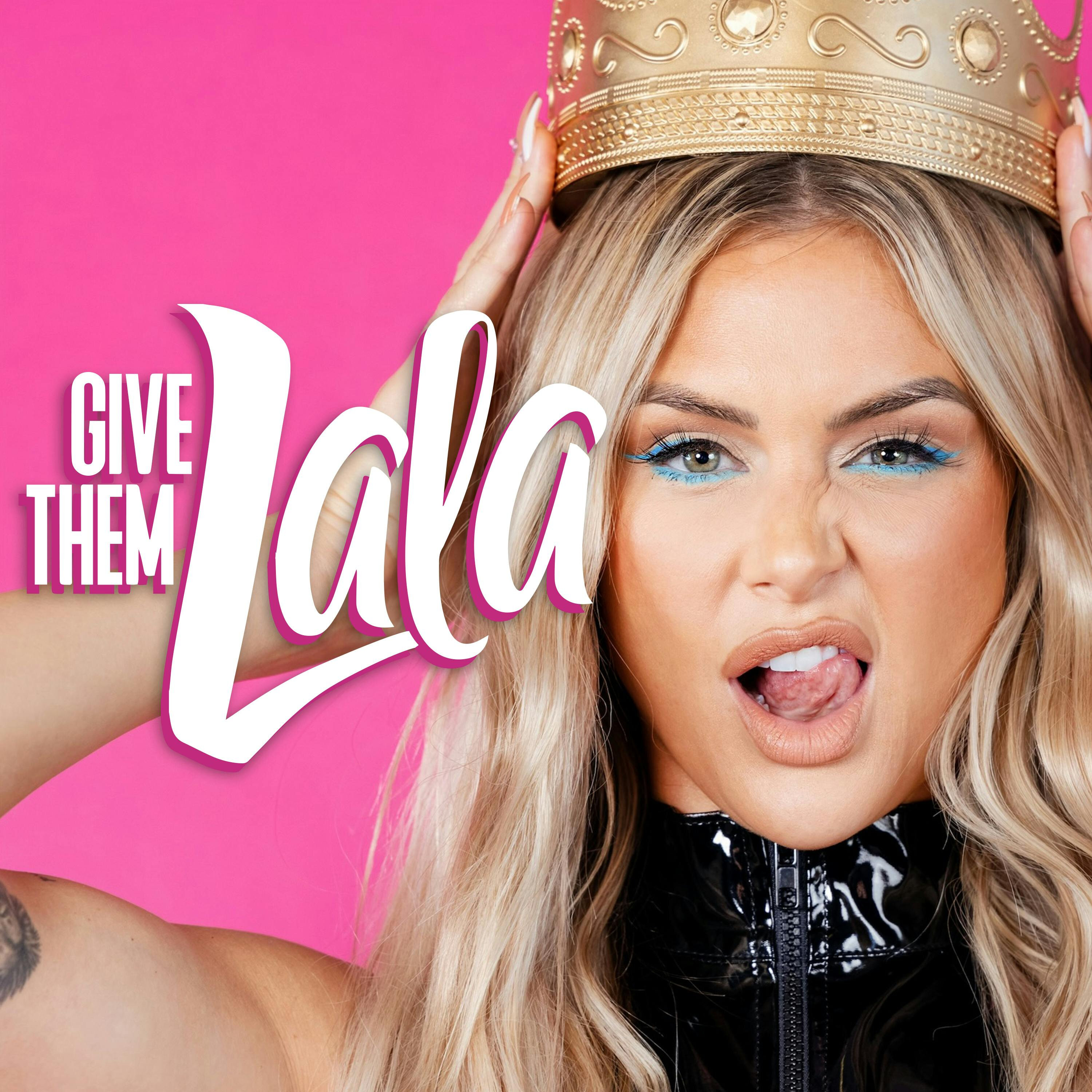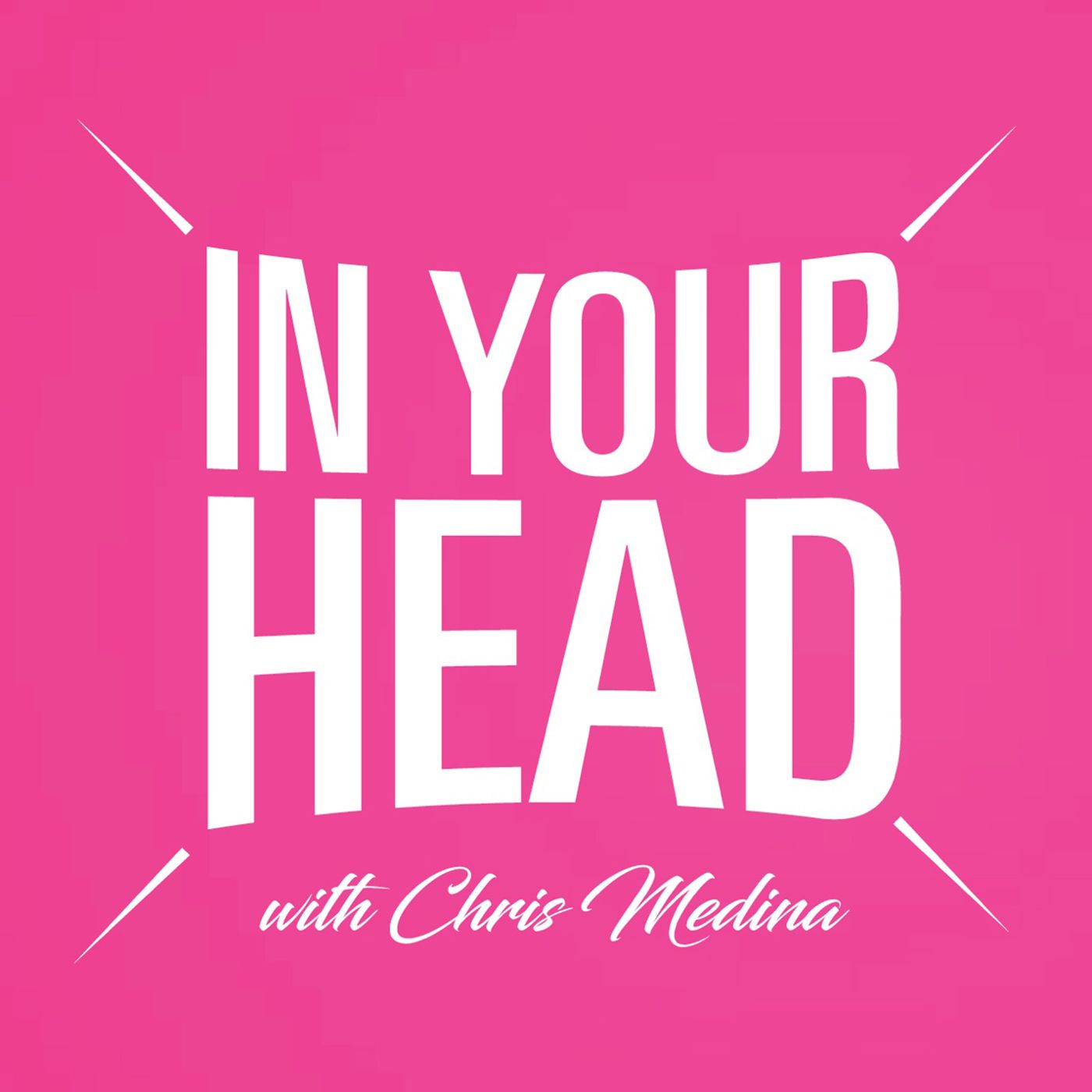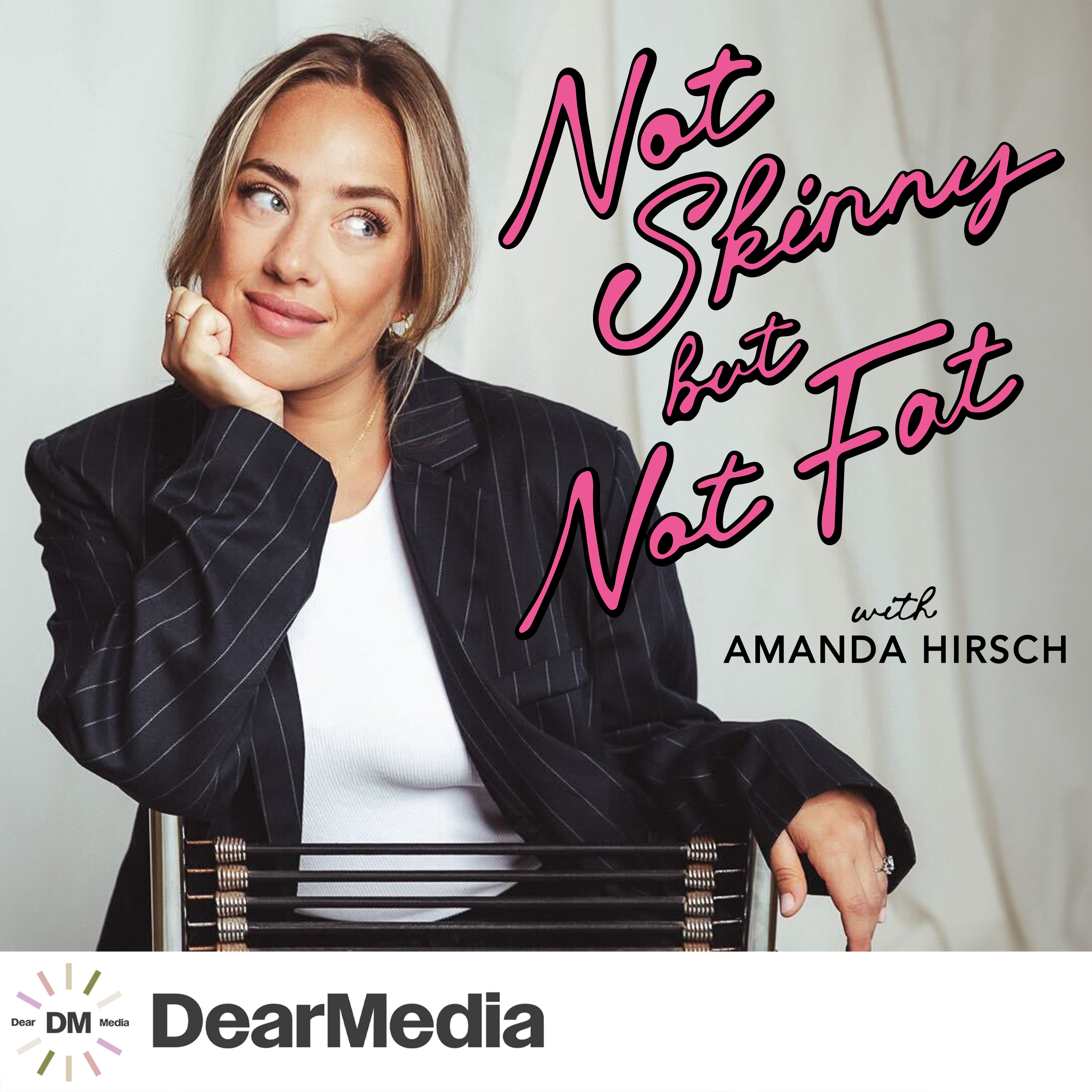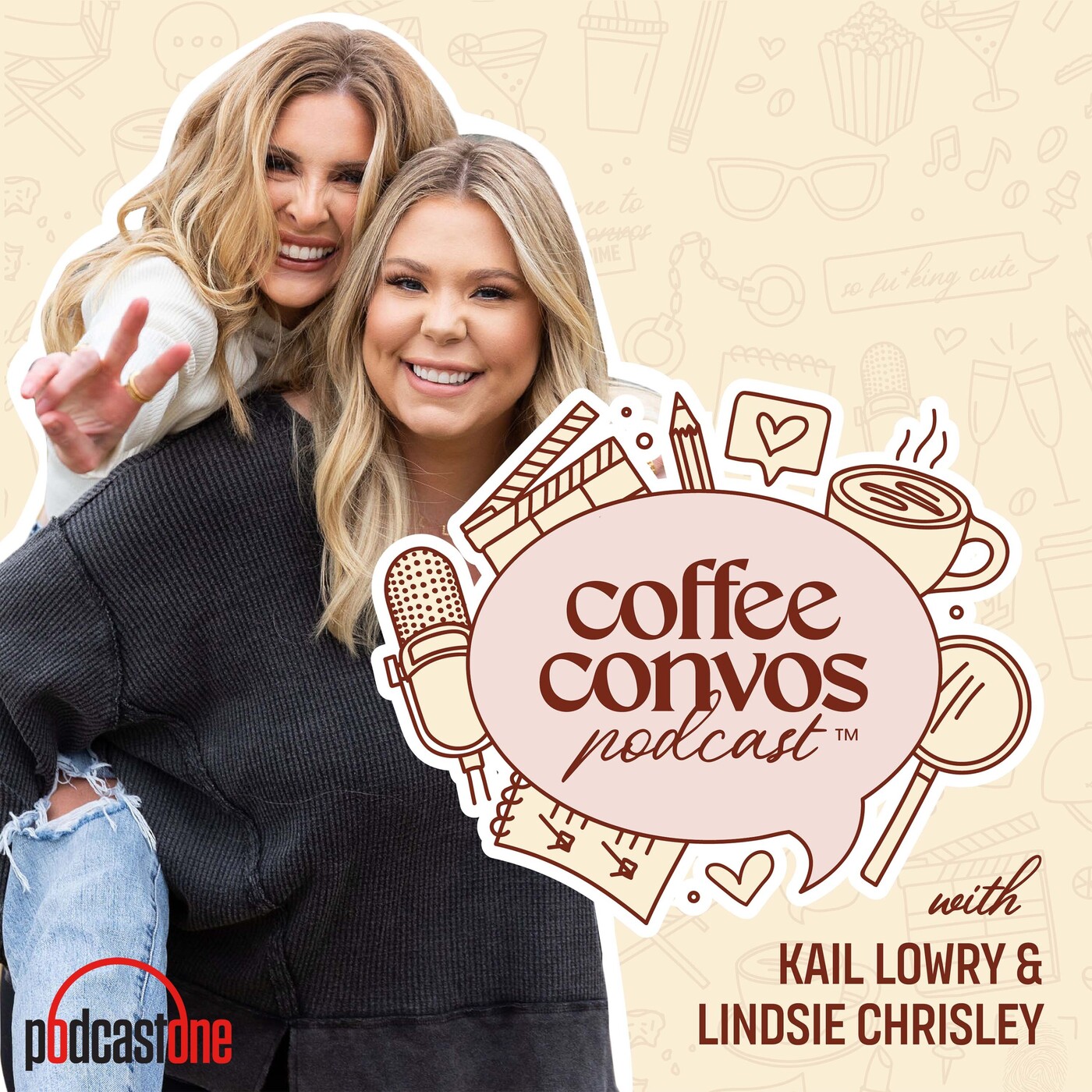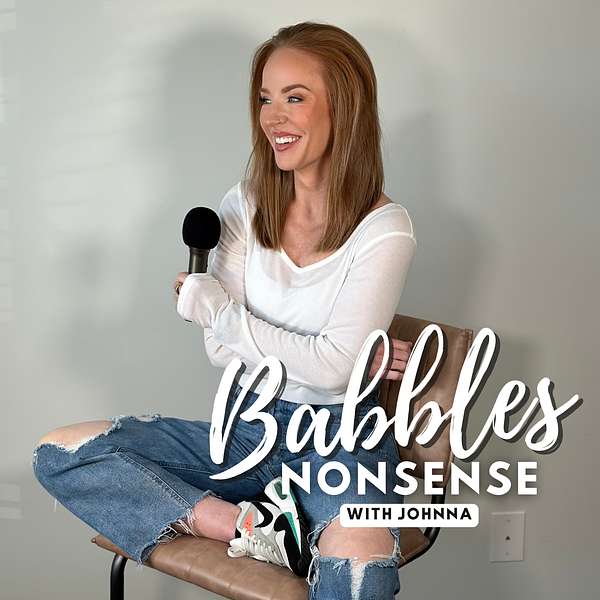
Babbles Nonsense
Welcome to my verbal diary where I want to discuss any and all things that is essentially on my mind or have wondered about. Sometimes I will be solo and then other times I will have some amazing guests to bring all different perspectives in life. The ultimate goal is to hopefully bring some joy, laughter, inspiration, education, and just maybe a little bit of entertainment. Don't forget to like, rate, and share the podcast with a friend!
Babbles Nonsense
What Our Grandmothers Fought For, We Must Defend
#171: The path to women's rights has been a long and winding road. From gaining the vote just over a century ago to today's heated battles over reproductive freedom, we're still fighting many of the same battles our grandmothers faced. But why does it feel like we're moving backward?
This raw, unfiltered conversation dives into the uncomfortable truth about how women's autonomy continues to be challenged in America. I share my personal frustration with how easily women's intelligence and confidence are dismissed, including a recent social media exchange with a "girl dad" who couldn't see the irony in publicly demeaning a highly educated congresswoman while raising a daughter himself.
We explore the historical context of women's rights, from the suffrage movement of the 1800s to the landmark reproductive rights decisions of the mid-20th century, and how recent political shifts threaten decades of progress. I tackle tough questions about reproductive responsibility, healthcare access, and the troubling gray areas in current legislation that put women's lives at risk.
What strikes me most powerfully is how society still polices women's voices. When we speak up, negotiate confidently, or refuse to back down, we're labeled "too much," "abrasive," or worse. But here's the truth I've come to embrace: smart, outspoken women scare small-minded people, and that's exactly as it should be.
Whether you identify as a feminist or not, this episode offers an honest perspective on what it means to navigate a world that still often views women's rights as negotiable. Share this with someone who's been told she's "too much" and remind her she's not alone in this fight.
You can now send us a text to ask a question or review the show. We would love to hear from you!
Follow me on social: https://www.instagram.com/babbles_nonsense/
What is up everyone? Welcome back to another episode of the Babbles Nonsense podcast. On today's episode, I'm going to attempt to do my best at speaking about women's rights and some things that have happened in social media lately that I've interacted with some men about not saying that I'm the one to call this out publicly, and this is in no way to be a man bashing session on this episode of the podcast. But I think certain things, especially in the political environment that we are in right now, do need to be talked about, and although I don't have the biggest platform, I do have a platform to talk about this. So we are going to get into things like women's rights, fighting for body autonomy and certain conversations surrounding these political stances, if you will. So let's get into it. All right, guys? So this is going to be a little bit more of a serious conversation, more so than what I typically do, and I wanted to talk about this because something happened last week that just kind of offset this topic.
Johnna :Since the new transition in power in the White House or president, or whatever you want to talk about in November, I've had three specific conversations with three men on social media that I don't know. I don't even know how to say it Because, like, everyone's entitled to their opinion, this isn't going to be to bash any political party or anything like that. I mean, I obviously have my stances and my beliefs and why I believe that, and I I'm very aware that other people have beliefs that differ from mine, and that's perfectly okay, that's what makes America America. But what I'll say is the rudeness surrounded around it is what bothers me, the things that people openly say without thinking, and I know we all say things before we think and we can all, you know, go back and say I'm sorry, we can all go back and try to grow and learn from it. But I think it's those conversations that we have where it's just kind of that dead stop where you can tell someone's not trying to learn and grow from it, and they meant everything that they said is the problem. So there's three specific incidences that I had.
Johnna :Like I try my best not to get into political conversations with anyone, just because it never goes anywhere. Right, because most people I mean that's what they say like there's three types of conversations in the world that we shouldn't have or not that we shouldn't have, but you should know who to have them with because it can just start a fight and me and my aunt have talked about this before just because, like in those conversations, being surrounded around religion, money and politics, and that's because most people have a deep rooted belief system and that's okay. I have my deep rooted belief system, but I think, again, like I'm saying, it's the morals and the ethics that are surrounded around it. When someone can't just open their mind and see a different point of view, or how do I word this or they are trying to put their belief system out there when it is damaging and harmful to other, whether it be genders, ethnicities, whatnot. So it's kind of hard to talk about because, again, when you do a podcast or you have a platform, it's more so, like I'm not trying to offend anyone, even though I know I will, because my belief system is clearly different than a lot of people. I have a lot of women that listen to this podcast. So I would assume most women think politically the way I would, but again, that's an assumption, right, like, maybe they don't think politically the way I would, but again, that's an assumption, right, like, maybe they don't.
Johnna :But before we can kind of dive into that hard conversation around body autonomy for women and you know, the evolution of women's rights, and then get into those examples that I've experienced since November. So, from November till now, we have to kind of dig into the history of, you know, women's evolution, because I think we all forget, even even women. I think we forget that it wasn't long ago that women just gained their rights, you know. So we all know that women's rights have always been that uphill battle. But let's just begin with one of the most pivotal moments in the fight for equality, which was the women's suffrage movement.
Johnna :And if you know me, you know I'm not a history buff, so I had to do a little bit of digging and a little chat GBT to get some of this history, because I'm just not a huge history buff, even though this particular year I have tried to get more politically involved, or more politically aware, if you will, because it's something that affects all of us and it's something that we have to start caring about. It can't be one of those situations where it's like, well, this doesn't affect me, so I don't care, because it does affect you in some form or another. Down the line, whether that be your child, you have in 10 line, whether that be your child you have in 10 years, whether that be the family you're trying to raise, whether you're trying to stay on this planet. For the rest of you know what I'm? Obviously we're staying on this planet, but I'm just using examples. But going back to the history lesson here, so bear with me for the history lesson. That might be a little bit boring, but it's just something.
Johnna :I feel like we quickly forget how, not long ago, these things, you know, went into effect with women. So, going back to the women's suffrage movement, so in the late 1800s and early 1900s, women in the United States began to organize in order to gain the right to vote. So it was women like Susan B Anthony and Elizabeth Cady Stanton, I believe, is how you pronounce her name. They rallied and marched and fought for basic political rights and it took decades of resistance and women finally gaining the right to vote in 1920. So this started in the late 1800s, when they started this movement just for women to vote. So women didn't gain the right to vote until 1920, when the 19th Amendment got passed. So let's think about that real quick. So it's 2025 and women gained the right to vote in 1920. So that was 105 years ago. And even though that seems, oh well, it was 100 years ago, Sure, but think about that Like it was only 100 years ago. Sure, but think about that, like it was only 100 years ago.
Johnna :Men have had the right to vote for decades and centuries, you know, and even in 1920, it still wasn't just a clear cut victory, you know, after that suffrage movement, with, where women were still subjected to countless restrictions in society with their vote, so, like, even though women gained the right to vote, we still were limited. Like, we were limited in career opportunities and the expectation was still surrounded by marriage and motherhood, like that's all, quote unquote, women were good for. So, if you fast forward a few decades past 1920, and the fight for women's autonomy expanded into the realm of reproductive rights. So we gained the right to vote 1920. And then, still, there was limitations around that. And then, you know, in the mid 20th century, that's when reproductive rights started coming around, like birth control, it became one of the hottest issues in women in the women's rights movement, in the women's rights movement. So, in 1965, the US Supreme Court ruled in the Griswold versus Connecticut that married couples had the right to use contraception, marking a major victory for women's autonomy over their bodies. But was it, you know, and we'll dive into that in a little bit but in 1973, that's when Roe versus Wade decision legalized abortions nationwide. It was a defining moment in the fight for women's reproductive freedom.
Johnna :But even after those victories, the battle for body autonomy was not over. Like we sure, we gained right to birth control, and something I'm going to say here with birth control and I think a lot of people have talked about more recently is that y'all can hate me for saying this, but like, why is it women's job to take birth control where? Yeah, how do I say this? Nicely, it's proven, like, obviously, right, so women are pregnant for nine months out of the year. Right, you can only have one baby in 12 months. You physically can't. Well, you can have twins or triplets, whatever I'm just talking about. You can only have one pregnancy in 12 months, okay.
Johnna :So if we can only have one pregnancy in 12 months, why are we trying to then put the reproductive responsibility on the women, when men can literally have sex 20 times a day, if not more, and impregnate 20 women at in one day? Why are we not focusing on men's reproductive rights? Because when we think about, like studies, like medical studies and any kind of study in general, whether that be the diet industry, the fitness industry, you know, medical, medical studies. Women were not studied until recently, because our hormones fluctuate so much that it's almost near impossible to get an accurate study or to have that baseline where you want it, because every woman's cycle is so different and you just never know how someone's going to respond to one thing versus the other. And that's why, like, I'm not saying I'm pro abortion when it comes to like a form of birth control.
Johnna :And these are just my opinions and my thoughts, so y'all please don't come after me. I am very pro choice for people to decide. I have my own thoughts and I don't. I've never been in a situation where I needed an abortion and that's you know. I'm very fortunate for that, and so I'm not going to sit here and judge or make a statement of I would never do that or anything like that, because I don't know what I would do if I was placed in that situation.
Johnna :I would think that I wouldn't have an abortion, because that's just something in my belief system, but I don't know. Like there's certain situations like what if I was raped. What if you know there was? There was something genetic wrong with a child, I don't know. That's why, a long time ago, I personally decided that I don't want children.
Johnna :And it's not because I don't like children. I love children. My sisters and brothers have children. I'm an aunt to multiple nieces and nephews my friends. I love hanging out with their kids. They're funny. I just personally don't want them, and a lot of it has to do with the political stances and society and how I feel our world is going, and it's just scary to me. But when it comes to just having the choice and having the woman's choice, I think that it's just crazy to me that we let men mostly men dictate our bodies when they have no idea what it's like Like. There's a lot going on in the political community right now.
Johnna :Sure, if y'all want to make pro-life a thing and you want to overturn Roe versus Wade, why are we not then trying to figure out ways to help women have more children so they're not wanting to have abortions? And again, not all women are wanting to have abortions. There are certain situations, I feel like, where abortion should be legal, whether that be rape, incest, whether there's just certain things. I do feel that if women need access to that, they should have access to it, because what's something we do know in society, even if there's not access to it, people will find access to it and it's way more dangerous and it's way more harmful to society and to women. But regardless of that, I'm just not to get on a tangent about abortion.
Johnna :I'm just saying that if we're going to make birth control strictly for women and women's responsibility, then we need to make it more affordable, we need to make it more accessible, which they're trying, and I appreciate the stance on like the opil. I think that's that's the new thing that you can get without a prescription at walmart. Um, they're still allowing the morning after pill to be utilized. But I just feel like we're not doing things about maternity leave and we're not doing things about, um, raising a child in our economy, where it's almost near impossible because children are expensive, and so I just think, if you're trying to lessen something that you don't believe in, then I also think that you should try to enhance other aspects to where people don't need that option.
Johnna :But we don't do that. We just cut things out and say you can't do that. I'm a man, you're a woman, you can't do that, and it almost makes you feel, as a woman, that we're going backwards to the 1800s by someone telling you what you can and can't do. For example, you know I work in healthcare. There's a lot of men that I see that have erectile dysfunction and what do they want? They want a pill to fix it.
Johnna :And there's a lot of people that go around saying, well, it's God's will for you to have that baby because you got pregnant. And I'm not disagreeing with that. I'm just saying like, if it, if we're going to play it to that aspect because a lot of people play into their Christianity when it fits their narrative if we're going to play into that aspect, then if it's God's will for someone to have a baby, I can get on board with that. But then also, it's God's will for you to have limp dick. Let's just say that you know there shouldn't be a pill for you to be able to have it. You know, I'm just saying there's also men that have 14 different baby mamas. Don't take care of any of them, and we're still not doing anything about that. We're allowing that to happen.
Johnna :And then these women and for some reason the women are blamed for this right because again, we have to go back to the birth control aspect of it. It's the woman's responsibility, and me and my brother got into a huge argument about this and we don't have to agree. We don't have to see eye to eye. Everyone has values and morals and things that they believe in and, like I said, I'm not sitting here saying that I believe people should just go out here and have abortions every day because they want to. I'm saying that there should be certain exceptions and we shouldn't judge people for what they do, because we're not in their shoes and we do not know how hard of a decision that is for them in that moment, because I've never been in that place so I don't know, and so it's hard for me to say absolutely not, you should have figured that out beforehand. It's hard for me to sit here and say that is all I'm saying.
Johnna :So enough of that talk, let's try to get back on board with the history lesson. So we kind of ended prior before me getting on a tangent was that in 1973 is when the Roe versus Wade decision legalized abortion nationwide. So we can fast forward to today and kind of our climate that I was just recently speaking about and, you know, despite the progress we have made over these decades of women's body autonomy, it's to. I feel like I'm not speaking for women everywhere. I'm just saying, like a lot of women that I've spoken with, it just feels like our body autonomy is still under serious attack now in today's political climate. And we can take a look at that political landscape because in recent years, we've seen an alarming rise in laws and policies aimed at restricting access to reproductive health.
Johnna :You know, the overturning of Roe versus Wade in 2022 was the big one that sent shockwaves through the country, leading to a cascade of state level restrictions and bans and abortion access and all that stuff. And it's still kind of going on today like we're hearing about certain states trying to make it illegal for women to cross state lines and that, like they're trying to then get like not make it illegal, like if you come back into your state and you went across the state line to where it was legal, which again, like you could say that about, like smoking marijuana, like it's legal in certain states and it's not legal but you don't put them in jail for going to a state where it's legal and then coming back to their home state, like that's where it's getting like really chaotic. It's just like and if y'all don't believe this is happening seriously, it is look it up. But regardless, it's not just about the abortion that's under a threat, it's the birth control, the gender affirming care and comprehensive sexual health education that is also under attack. So we can take, for example, texas senate bill number eight, which allows for private citizens to sue anyone who performs or aids in abortion.
Johnna :So the ongoing battles in states like Mississippi and Alabama, where legislation is pushing for extreme abortion bans, some with no exceptions for rape and incest, and even taking it a step further, because where the law doesn't become clear is things like tubal pregnancies, and if you don't know what that is, it's where the baby forms in the fallopian tube and there's like it didn't get to the uterus but it's starting to grow within the fallopian tube and it will not survive and it will, if rupturing, kill the mother, like it's just a hundred percent fact. So usually once you find out that you have a tubal pregnancy, you hope to find it early. Most of the time, I think they have to remove the fallopian tube, which then puts you at greater risk for not being able to get pregnant in the future. But it saves the mother's life and it does obviously terminate the pregnancy because it's not going to like it has a hundred percent non-survival rate. But even things like that where women are going to emergency rooms because they're either hemorrhaging vaginally and having a miscarriage or they're having tubal pregnancies and it's ruptured because the law is so gray, there's certain areas where it's so strict that doctors are afraid to help women until it becomes life or death because they're so afraid that they're gonna go have to stand in front of a courtroom and defend their medical license because they quote unquote performed an abortion, and so let's think about that.
Johnna :So even the term abortion is just got such a negative connotation In medical care a lot of you probably don't know. Like when you go in to have a baby you have gravida, para and abortion on. It's like GPA and if you've ever said so, gravida means how many pregnancies you've had. So let's say you've had three pregnancies but you had one miscarriage, so you have two living children. Okay, let's go with that example. So you would be G3 because you had three pregnancies, p2 because you have two living children and A1 because you had a miscarriage.
Johnna :So the term abortion also includes miscarriages, but because it has such a negative connotation, women are like please don't put on my chart that I've had an abortion because I have not had an abortion. So like, there's elective abortions and then there's abortions that happen naturally and that's called a miscarriage. But you don't see it GPM, you see it gpa, and so a lot of people forget that. And so like, even if it's a med, a um, what's it called a medicine? Induced abortion because the baby was not going to survive and it causes a miscarriage. That is now, they're saying, illegal in certain states because the law is not. Um, what's it called like clear? It's just very gray.
Johnna :But it's not just about legislation. It's about the fight for women's body autonomy, because it's deeply tied to how women are portrayed in the media and politics. From the constant scrutiny of women's appearance to the framing of their reproductive choices, women's bodies are often used as political pawns or media fodder. Should women have over their own lives and decisions and how much should the government be allowed to control? You know what I'm saying. So the rhetoric, the rhetoric around women's rights, is very intense, it's divisive and at times it's deeply harmful, and I see that a lot just being in the medical field but we see constantly that politicians and public figures usually men I mean, there's some women, I'm not going to sit there and say it's always men, but it's usually I hate to say this white men deciding that women can and what women can and cannot do with their bodies, and they ignore the voices of women giving them these stories or medical providers telling them like, hey, there are certain situations where this is life or death for the mother, and it's like people don't care.
Johnna :But what's clear is that women aren't backing down. We are. You can tell that there's a surge of activism going on. There's protest, there's pushing back against these political efforts, and one of the most notable movements is the hashtag me too movement, which did spark conversations around sexual harassment, gender based violence and the right for women to be in control of their own bodies and voices. So you can tell that this is stemmed from the 1800s and it's still going on today, in 2025, which is almost mind boggling and baffling. It's like we're going backwards and a lot of people are saying that.
Johnna :You know, even though the political landscape currently feels like an uphill battle, there is a growing wave of activism and advocacy that is fighting for change. Those examples is the reproductive justice movement, which is highlighting not only the right to have access to abortion but also the right to have a child and raise that child in a safe and supportive environment. And that goes back to the conversation I was having earlier, like, if we want women to continue having babies and we want to eliminate the need for abortion, then we have to, as a society and as a political society, do something about that supportive and safe environment about having a child. Um, because we all know that, like, postpartum depression is real, more people are talking about it. Um, we still forget how dangerous pregnancy is. Just because we have hospitals and stuff like that does not mean that pregnancy is still not killing women, you know? Um, so we just have to remember that and I think it's just.
Johnna :I think about more women showing up at the polls and voting, and record numbers is what is championing these women's rights. But even talking about women going back to voting and how we just got access to vote in the 1920s, this new bill that was passed, and I forget, I think it's called like the safe. What's it called? Let me look it up real quick. I think it's called like the SAFE. What's it called? Let me look it up real quick. Yes, it's called the Safeguard American Voter Eligibility Act. So it's the SAVE Act and it actually got voted on and passed recently.
Johnna :But a lot of women were very concerned about it because there is a place in there that basically says so. Essentially, the SAVE Act, in short, is to prove that you're a citizen to vote, which we all agree with, right, like we should all prove that we're citizens to vote. But the part in it that's very, again, one of those gray, it's not very black and white. It says if you have a different last name than your birth certificate, then you have to prove that you're a citizen, and so I don't know what they're going to put into place and all that. So I'm not. I'm not trying to speak so negatively about it, but I understand where the women were coming from when this came out, like there, I feel like they need to enhance it a little bit more and put more verbiage in there, because let's think about that Most women who are married don't have the same last name as their birth certificate.
Johnna :I personally don't have the same last name as their birth certificate. I personally don't have the same last name as my birth certificate. I've never been married, but my stepdad adopted me, so I have my stepdad's last name and I have to and I know like even not not just with voting, but like when I went to get my license or I graduated nursing school, I had to take my name change, form the legal document where I changed it to prove why I changed my last name, which I understand. Like, even when women get married, they have to do that. They have to take their marriage certificate to the DMV and all that stuff. So it's a lot that women have to do.
Johnna :So it's either going to happen one or two ways. Women are going to stop changing their last name and say, screw it, what's the point. Or they're going to have to, like, make this law where it's like less scrutinized, I guess, or where it's like well, if you have a driver's license and you have a passport, you clearly proved that you're a citizen, so you don't have to worry about it, or something I don't know. I don't know what they're going to do there. Like, I know there's a lot of public and political debate about this current act right now, so we're just going to have to see how that plays out.
Johnna :But it's just think little things like that, like we shouldn't have to worry about, can we vote? Because you have to think in the back of your mind. That's where it's like well, do they even want women to vote? Because more women are showing up to vote and women care about reproductive rights and women care about all these things. Because it almost feels and I'm not trying to say that it is it almost feels like we want the dominance in society to be white men. And why is that? Why do we want that? Why do we want to go back or backwards? We know that this nation has, you know, grown and thrived off of diversity and we need to continue to diversify our nation to make it such a great nation, because the cultures and the diversity is what makes America great, you know. So, yeah, that's all I'm going to say about that. But what stemmed so that that was a long winded historical lesson.
Johnna :But what kind of triggered all of that was this comment on Facebook recently about a guy I went to college with. So I wouldn't necessarily say that we're like besties or anything Like. I did hang out with him a lot in college because a lot of my guy friends hung out with him and he posted and again, I'm just going to preface this like everyone's entitled to post what they want to post politically on their Facebook pages or Instagram, wherever Like. Obviously, yes, I can defriend and whatnot, but there's certain things that people post that I do feel compelled to respond to and this one I definitely did, and it's usually when it's just rudeness about someone's character. So there was this article and I don't even know if it's a real article or not. I honestly haven't done any digging or whatnot but it was about Jasmine Crockett saying that she was challenging Trump to an IQ test and whatever you want to post that, post it. But then it was the caption above it that really triggered me when he said my nine month old daughter is smarter than this woman talking about Jasmine Crockett.
Johnna :So where do we even start with this? So I think, before we even get into that, I just want to start out by saying I think there's something, this is something that we don't talk about enough, and that's just how comfortable the world gets when women do have confidence and are intelligent and, you know, are showing up to vote and you know we're standing up for ourselves because we have had this huge movement since the 1800s, where it was just sit in the kitchen, be quiet, do what your husband says. And now we're having more and more women each year speak up for what they believe in and what they stand for. Who is constantly, you know, called a bitch or told that I'm too much or that I'm too abrasive because I don't back down and I do share my own opinion. And then you have women that are very smart and you know, and they're, you know, they're, they're called other things than just being smart. Or if someone's bold, you know, they say she better smile when she says something. If someone's bold, you know, they say she better smile when she says something.
Johnna :Or, going back to the one, if someone's smart, like, then you have to also be sweet and not show too much intelligence. So it's just this you know we're supposed to just downplay our thoughts and our processes and you know, look to men to lead and that's fine, like if we, if we're going to go back to the female masculine energy thing, but I'm talking about like true character and true, you know, intelligence and things like that. So, going back to the example of this guy posting that, that's what bothered me. So I did speak up and you know, I did tell him and I said the comment to me was like, I'm not making this political. Like if you want to share this and you're upset about it because you're a Trump supporter, obviously, then that's fine, that's your right. I'm not. But there was no reason to then have to put Jasmine Crockett down.
Johnna :Jasmine Crockett is actually a very intelligent woman. She has multiple degrees, she graduated from Harvard Law. So what are you talking about? You're nine month old, is smarter than her, than her Like. That was just such a derogatory, rude comment that was just unnecessary. You could have captioned it with anything else, anything you could have just said can you believe this? Or what the hell? Anything. But you didn't have to put her as a woman, especially a woman of color, down about, about, about anything. So my comment back to him was you know, you really didn't have to do that.
Johnna :I'm not trying to make this political, but speaking of being a girl dad, like wouldn't you be very upset if someone was speaking about your daughter? The way you're speaking about Jasmine Crockett Because that's something that really blows my mind about men that have daughters is that they don't even stop to think. I'm not saying all again, this is not just a all I know, there's a spectrum. I'm just speaking about this far left spectrum. Like it just blows my mind, even in dating, not just politics that when you're treating a woman a certain way, like the thought doesn't cross your mind like this is someone's daughter, would I want my daughter to be treated the way I'm treating this woman? And that's just mind baffling to me.
Johnna :And the fact that he responded back to my comments saying well, my daughter. What did he say? He said well, my daughter. Um, oh, he said something like um, well, even though she's someone's daughter doesn't mean that her comment wasn't stupid or something like that. So like I had to hit him back and I'm going to read exactly what I wrote. So I had had to hit him back with this response.
Johnna :As I said before, let's just hope your daughter never expresses an independent thought that someone decides to tear down the way you just attempted to do about Jasmine Crockett. Your response makes it clear where you stand and for me this isn't about politics. It's about's about basic decency, empathy and how you choose to speak about women, especially women of color. One day, your daughter may be the one on the receiving end of a careless comment like yours and when or if that day comes, I hope you remember this moment because you are setting the tone for what's acceptable and will have no room to be outraged. The fact that you, a father, can't even recognize the weight of your own words is disturbing, because this isn't just a difference of opinion. This is a reflection of character and, honestly, it's not a good look.
Johnna :It's best we go our separate ways on Facebook, not because we don't see eye to eye politically, but because I refuse to engage with someone who defends disrespect under the disguise of just speaking the truth and refuses to see how the comments being made are not only disrespectful but downright rude. And he deleted the post, which you know, point proven it wasn't about the post and the picture or whatever. I don't care that you support Trump. I've literally seen your timeline since November and I've said nothing. It was this one rude comment about women and clearly y'all can tell I'm aggravated by it and I think it's just recently that it's been bothering me, like clearly I've been a woman my whole life, like it's never really bothered me.
Johnna :I would I wouldn't say I'm like an over, overly active feminist, but I think, just in most recent times in my life, like especially with my job recently, where I had to negotiate my salary and things and comments being made about like I was very professional during it, during it, but it's almost like I was never called a bitch or anything like that, but it's almost like that's how I was made to feel, like I was made to feel like I was asking for too much or I was being too outspoken, and me and my aunt again had a conversation about this where it's like if I was a man in that moment it wouldn't have mattered what I said, because men are allowed to ask certain things and they're allowed to be assertive and they're allowed to have that characteristic about them. But if a woman is outspoken or a woman is, you know not, you know not backing down and they're standing their ground and they're speaking very professionally, then we are considered a quote, unquote bitch. We are considered, you know, unruly or too much. And it's just, I think, because you know, nearing 40, it's just too much sometimes and I think that society could all do better, politically, societally, workforce dating, all of it could just be better. But anyways, again tangent, going back to this comment by this guy, like it just it really struck a nerve with me, like it just really made me realize, and then, like, just reflecting on everything in my life, like going back to the birth control situation and the conversations I've had with men about that and whatnot, it's just crazy to me, like it really is insane, like women and men just do have a different thought process. Now, don't get me wrong, some of my very best guy friends I just love having conversations with them about that because they're very open minded and they do sit down and like we can have like talks and we don't necessarily have to agree, but then we both walk away.
Johnna :Learning something and changed behavior is the way to address what, what we've learned. You know, not just speaking about it, um, but yeah, it's just, you know it's just exhausting, it's it's it's a trap in a, in a, in a way, um, I just. But what I'll say is I'll take away, like I used to get really bothered when someone told me I was too much or I was. You know I was, I was strong, or I'm intimidating or any other word you want to put in there that where a woman just stands up for herself or knows what she's wants, or very career driven. Just know, if people make comments like that to you, like it used to really bother me, Um, but I think, like, just as I age and the more people I talk to and like working in therapy, I just think it just means you're doing something right.
Johnna :I think the truth is that smart, outspoken women scare small minded people, and you know we should, and that, just if someone's coming at you pretty aggressively and you know that you're speaking professionally and you know that you're coming from a place where you can change things or make something different, or you know you're the right person for the job, I think that you are dealing with a small-minded person who can't even fathom a thought outside of what they're thinking and that's on them, you know.
Johnna :Continue to speak boldly, continue to think critically and never, ever ever let sarcasm stop you from taking up space in this world, because we have to continue fighting that fight. It's going to be a fight for a really long time, unfortunately, but I'm just going to end it right there. I'm sorry, I babbled a lot, but I hope you enjoyed this conversation and thank you again for allowing me the space to vent my frustrations out. But if you felt this episode and you liked it, then I hope you will share it with someone who's been underestimated in the past and remind her that she's not alone. So until next time, guys, keep your voices strong and your standards high. And bye, thank you you.

